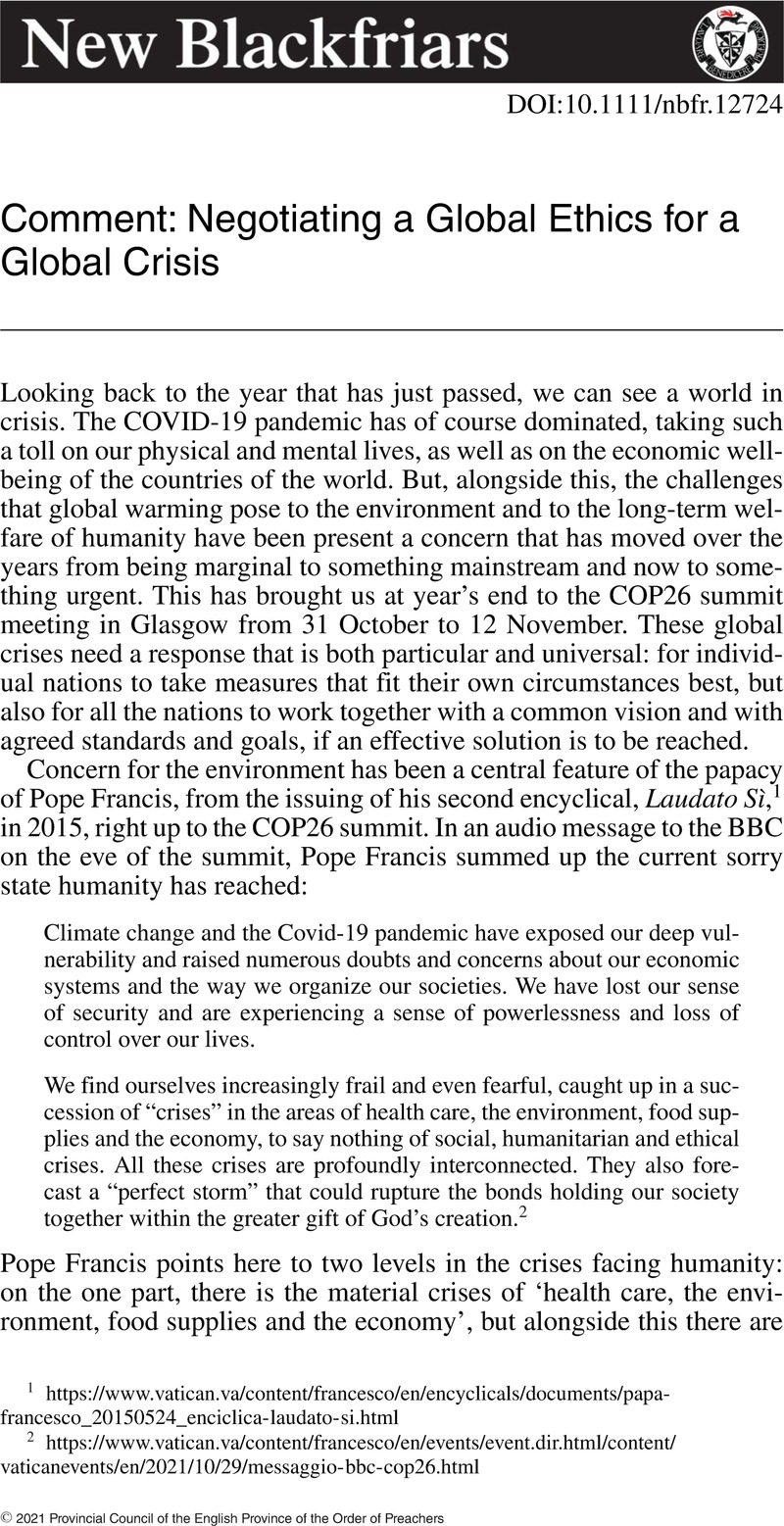No CrossRef data available.
Published online by Cambridge University Press: 01 January 2024

3 ‘Faith and Science: Towards COP26’ https://press.vatican.va/content/salastampa/it/bollettino/pubblico/2021/10/04/0627/01342.html
4 Ibid. para 5.
5 Laudato Sì paras. 67-75.
6 Address of Pope Francis to participants in the meeting, ‘Faith and Science: Towards COP26,’ section 1.
7 Ibid. section 2.
8 Ibid. section 3.
9 Laudato Sì para. 62